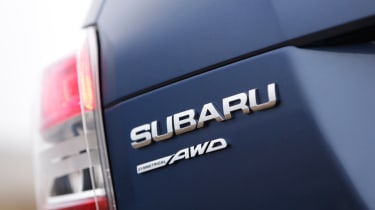Subaru Forester (2012-2018) - MPG, CO2 and Running Costs
Reasonable residuals keep the cost of ownership in check, and you get lots of kit for your cash

Just so you know, this is an older review of the 2012-2018 Forester. If you are interested in information about the current Subaru Forester, or news about the latest Subaru models, please follow the links provided.
All three engines in the Subaru Forester line-up come with stop-start technology, but it’s not enough to keep the mpg figures abreast of best-in-class rivals.
The 2.0-litre petrol can be had with manual or CVT gearboxes, the latter improving consumption marginally to 43.5mpg on the combined cycle – compared to the manual version’s 40.9mpg. The CVT will also save you money on road tax, or your company car tax bills. Hooked up to the normally aspirated 2.0 petrol it cuts CO2 emissions from 140g/km with manual gears to 129g/km.
The 2.0-litre turbo petrol is only available with a CVT and returns just 33.2mpg on the combined cycle, which isn’t a great trade-off for the extra power on offer. It's expensive to buy, too, and won’t look that attractive to company car buyers either, with a C02 figure of 161g/km.
The diesel predictably offers the best fuel economy of 49.6mpg, with CO2 emissions of 150g/km, and while it isn’t ultimately as fast, it develops the same 350Nm of torque as the petrol turbo. That makes it the best compromise between all-round driveability and running cost.
However, keep in mind that while fuel economy isn’t too bad when driven smoothly, we found an enthusiastic approach caused the Forester’s mpg to suffer markedly more than its rivals.
Insurance groups
Insurance group ratings for the Subaru Forester range from group 23 for the normally aspirated 2.0 petrol model in lowest spec, to group 34 for the turbocharged XT version.
Depreciation
A loyal – if small – brand following here in the UK means residual values for the Forester are average for the class. Unsurprisingly it’s the diesel models that perform the best, with the experts at CAP predicting the 2.0 D X will hold onto 45 percent of its new value after three years and 36,000 miles.
Petrol models will fare a little worse, but not much, and CAP reckons total cost of ownership (including all running costs and depreciation losses over the three year/36,000 mile model) will range from a little under 18k for the 2.0 D X to a shade less than £24k for the 2.0 XT petrol turbo.







